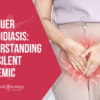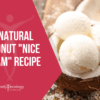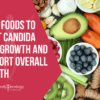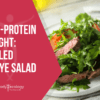All Roads Lead to Probiotics
Beneficial microflora inhabiting our intestines have played a very crucial role in human health for thousands of years. You could make the same statement for all other animals living on this planet as well. Yes, even chickens, fish and insects have an “inner ecosystem” teeming with microflora pretty much like ours.
One of Body Ecology’s “missions” is to help you understand that eating a probiotic diet (one rich in fermented foods) is extremely essential if you wish to live a long and healthy life. Unfortunately, common misconceptions have led the public to believe that bacteria are bad guys that they make us sick and can even kill us. In fact, our current medical system has been at war with bacteria for over fifty years (when the first antibiotic was developed) and we still haven’t really won the war yet. It looked like we were winning for awhile, but bacteria are really intelligent beings and have evolved to outsmart us so that even the strongest of antibiotics are no longer working. What do we do now? Body Ecology has the solution. We’ve been a leader in teaching the world about the importance of these beneficial microflora. In this issue we want to clarify common myths and misconceptions.
We are always happy to see any focus on probiotics. In the April 2004 issue of Natural Health Magazine, they state that fermented foods are the new stars of a wholesome diet”. This is an excellent article worth reading. (Click here)
Another article was recently written in the Chicago Daily Herald called Friendly bacteria can help gastrointestinal health (November 8,2004). We would like to thank Susan Stevens for her research on this topic, but some of the statements made in the article are perfect examples of public misconceptions. This is where we begin our in depth look at the world of probiotics.
Chicago Daily Herald misconception:
When something goes wrong…an infection, a virus, even antibiotics the bacteria go AWOL and we end up in misery.
Truth:
Infections and viruses do not kill bacteria in the gut, nor do they cause natural microflora or bacteria to go AWOL. It’s the opposite. When an infection is present in the body, beneficial bacteria become more activated and participate with the immune system to bring an infection under control. Antibiotics will hopefully destroy the bad bacteria, but will unfortunately and definitely kill most beneficial bacteria that you want living inside you. Beneficial bacteria are more fragile and easily destroyed even stress, diets high in sugar, and chlorine in your drinking water will kill them. Unfortunately, the antibiotics prescribed today do not kill all pathogenic bacteria, which is causing a great deal of frustration and alarm among the medical community.
Bacteria do not go “AWOL”…a term that implies that they willingly choose to leave. They are killed off suddenly, leaving your intestines vulnerable to invasion by pathogens. Although harmless, yeast remain in your intestines (like viruses, yeast are not effected by the antibiotic). They are no longer kept under control by the beneficial bacteria and begin to multiply in great numbers. In other words, they become greedy and pathogenic, grow tentacles, and burrow into the protective mucus lining creating sites of infection. Your gut becomes inflamed and you now have the beginning of another kind of infection a yeast or fungal infection. Beginning in your intestines, the infection spreads into the blood (systemic) where poisonous material and the yeast now leak through the inflamed walls, creating havoc in the body. And yes, it is misery as stated in the Chicago Herald. Body Ecology s system of health and healing is respected as the most effective program for conquering this serious yeast or fungal overgrowth.
Diet is the single, most important step to take in overcoming a fungal infection. How you must eat to conquer this potentially fatal condition is spelled out in detail in our best-selling book, The Body Ecology Diet. (Click here)
Chicago Daily Herald misconception:
Scientists are learning that probiotics, taken as supplements, can treat a host of disorders by restoring those beneficial bacteria.
This statement implies that if you take probiotic supplements, this is all you need to keep microflora in your gut.
Truth:
The probiotic foods and beverages that we teach you to eat on the Body Ecology Diet are far superior to supplements, and much less expensive. However, when supplements are taken, they work much more effectively IF AND WHEN you are eating a diet rich in probiotic foods and beverages.
Why? The amount of bacteria in foods and beverages are enormously greater in number than you re going to find in a probiotic supplement. Far greater numbers survive the trip down your intestinal tract to arrive safely at their destination sites where they will colonize. BED s fermented food and beverages are going to ” pave the way” and “lay down the groundwork” for the more delicate, fragile bacteria found in supplements to survive their journey. Once you stop taking the supplements, their bacteria and their beneficial effect will go away–if this basic foundation is not set into place. Your goal is to establish an inner ecosystem and permanently colonize your intestinal tract.
An inner ecosystem is the dynamic, interrelating and complex community of microflora combined with their environment (your intestines) that is involved in the transfer of energy and material into your body and both your brains.
Fermented foods and beverages are needed on an on-going basis, so why not add fermented foods to your diet? They re more nutritious than any other food you could possibly eat because fermentation multiplies the nutritional benefits of any food or beverage by hundreds of times.
Chicago Daily Herald misconception:
A study in Finland found that allergy-prone mothers who swallowed capsules of benign bacteria during pregnancy were less likely to have children suffering from eczema. Only 23 percent of the children exposed to the Lactobacillus GG bacteria developed skin allergies, compared to 46 percent of the control group.
Truth:
The problem we have with this statement is with the word benign. Lactobacillus GG is not a benign bacteria it is a beneficial one. Benign means harmless benign and good bacteria, as well as good yeast, perform very useful tasks inside of us, including:
- Manufacture of B vitamins
- Keep our intestines and our entire bodies much more clean and healthy
- Extract minerals from the foods we eat and change that food into amino and fatty acids
- Protect us from parasites and play a key role in hormone assimilation.
They perform many more functions and are responsible for over 80% of our immune system. However, only about 15% of the bacteria in your intestines will be beneficial Approximately 80% will be benign. Ideally, only a very tiny amount will be pathogenic, who will be eaten up or destroyed by the good guys , as they perform their important job of policing the environment for the troublemakers. These harmless or benign bacteria (80%) hold the space in our intestinal tract and it is important to know they are there for a reason, and are essential in the civilization of bacteria.
Erroneous statement:
At birth, the human gastrointestinal tract is sterile. The organisms that colonize first tend to dominate the system. For much of human history, babies got their first gulp of bacteria – usually Lactobacilli and Bifidobacteria – from their mother’s birth canals and breast milk.
Truth:
It is a commonly held belief that the mother s breast milk contains bacteria. They ve actually analyzed breast milk and found that breast milk has no bacteria.
Breast milk has an important function of containing sugar (lactose) that creates a sticky, mucous-y coating on the intestinal lining that the bacteria can nestle into so that they can colonize.
Donna Gates believes the microflora enter even sooner. Approximately a week to ten days before actual labor begins, the mother s cervix will dilate about two centimeters. Donna believes the bacteria in the birth canal enters the womb at this time and penetrates the amniotic sac. Research has already shown that pathogenic bacteria from the mother s vagina can and do invade the amniotic sac earlier in the pregnancy, causing problems for the unborn child. In fact, this is a frequent cause of premature birth.
Babies drink the amniotic fluid that ought to contain beneficial and neutral bacteria. In this way, Nature is ensuring that the newborn inherits a healthy inner ecosystem. Once labor begins, the baby is exposed to even more bacteria as he or she slips through the birth canal. Pregnant and nursing mothers should eat a wide variety of fermented foods daily.
Inoculation of beneficial bacteria via natural birth canal is exactly the way nature vaccinates us. If parents understood this and trusted nature, we wouldn t be so fearful and so susceptible to the pharmaceutical industry that is insisting we vaccinate our babies at birth. Doing so is dangerous. Live virus vaccines were originally developed for very healthy people who had well-developed immune systems. It will take about three months for a newborn baby s inner ecosystem to be cultivated , but once beneficial bacteria flourish inside his tiny gut, it will encompass over 80% of his immune system.
Chicago Daily Herald Misconception:
Dr. Hector Hernandez, a pediatric gastroenterologist at Advocate Lutheran General Hospital in Park Ridge , said some patients suffer prolonged diarrhea after taking a broad-spectrum antibiotic. Such drugs can wipe out not only the bad bacteria causing an infection, but also most of the good bacteria that aid in digestion and keep pathogens in check. In their absence, bugs not killed by the antibiotic can multiply and wreak havoc in your colon.
Truth:
Because we have the utmost respect for the important work of beneficial and even neutral microflora, we are never happy to see them referred to as bugs. They are in no way related to insects and actually belong to the class of plants, algae and fungi that cannot be seen with the naked eye. Since most of us think of mosquitoes, cockroaches, flies etc. when we see the word bugs, we cringe inside Yuck! Beneficial and even neutral microflora are only advantageous and absolutely necessary for leading a long and healthy life. They protect and serve. They are highly intelligent and deserve to be spoken of with the greatest of respect.
Chicago Daily Herald misconception:
Many products do not identify the particular strain of bacteria, making it impossible for consumers to verify whether they’ve proven effective in clinical studies. Worse, researchers have found some products do not even contain the bacteria listed on the label, or that the bacteria are, in fact, dead and therefore useless.
Truth:
This is actually a very true statement. Probiotic supplements have become a multi-million dollar industry. Many companies produce a mediocre or even poor quality product. Find a company you can trust.
But also be sure you eat and drink probiotic foods every day. They are delicious, fun and easy to make and Body Ecology can teach you how. And please read on to learn of three delicious beverages Body Ecology is introducing from Australia, that you can order from us.
Chicago Daily Herald statement:
They (beneficial microflora) certainly are not harmful, and they may help with symptoms like gas, bloating, diarrhea,” she said. “It’s a very encouraging area of research right now. We’re excited we could potentially use good bacteria to change the way people feel, but it’s really early in the story.
Truth:
Potentially use good bacteria to help us stay well and to heal and they MAY help us? How there could be any skepticism surrounding the advantageous use of probiotics is ridiculous! Beneficial bacteria have been around before humans and have been serving mankind forever! Since the advent of the microbiology era investigators (eg. Carre, Tissier, and Metchnikoff) attributed both health and disease to the shifts of the microbial balance in the intestines. (We use the term, the inner ecosystem.)
Long before this, in 76 BC, the Roman historian Plinius recommended the use of fermented milk products for treating gastroenteritis. In a Persian version of the Old Testament (Genesis 18:8) it states, Abraham owed his longevity to the consumption of sour milk. (Obviously it would not have been pasteurized.)
Are we to anxiously hold our breath awaiting government approval of these amazing beings? Do we even have the time? Remember, this is the same government that so quickly approves man-made drugs, like vaccines laced with mercury? And only when millions of angry parents of autistic children went to war with them did they reluctantly withdraw the mercury.
They still push vaccines, but now to the elderly, as evidenced by the recent flu scare where millions of elderly Americans waited in long lines to obtain a flu shot. Was there really a scarcity? Everyone who wanted one seemed to get one? Creating fear certainly motivated sales. If Americans understood that true immunity comes deep inside in the hara or power region of our body, our older citizens would have shrugged their shoulders at the news and enjoyed their glass of kefir that morning instead.
A probiotic diet like The Body Ecology Diet will offer solutions to many of our modern diseases, including the ever-growing problem of obesity in adults and children. With healthy inner ecosystems, we ll stop craving refined carbohydrates that make us fat. Once your inner ecosystem is established, you ll thrive on the delicious sweet taste found in fruits, vegetables and grains while the microflora living inside you will also blossom on the small amount of sugar Great Nature has provided for both of us.








